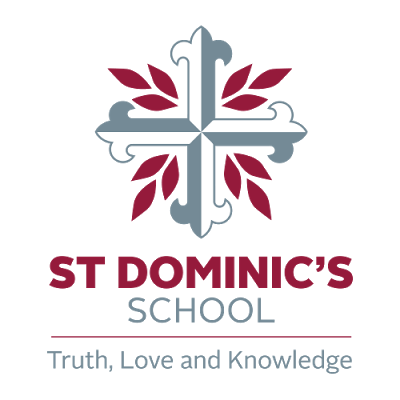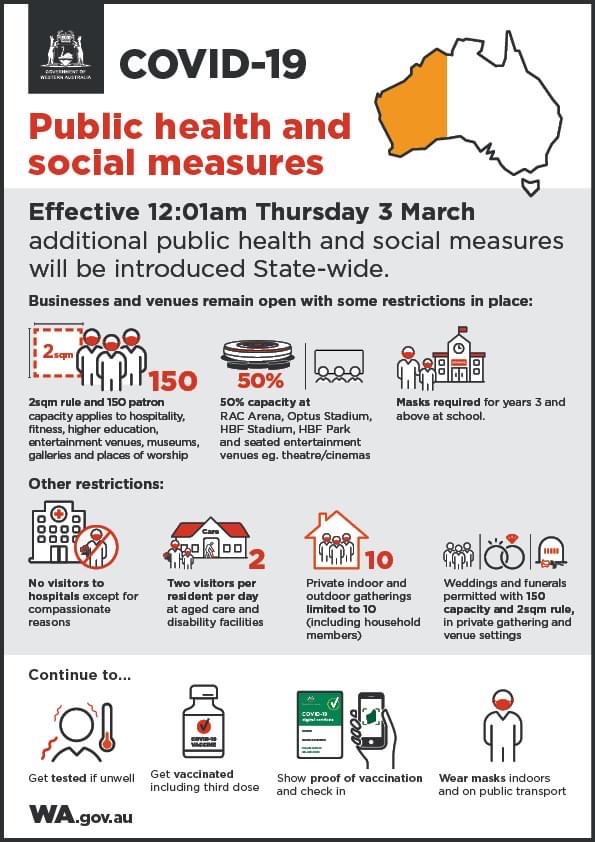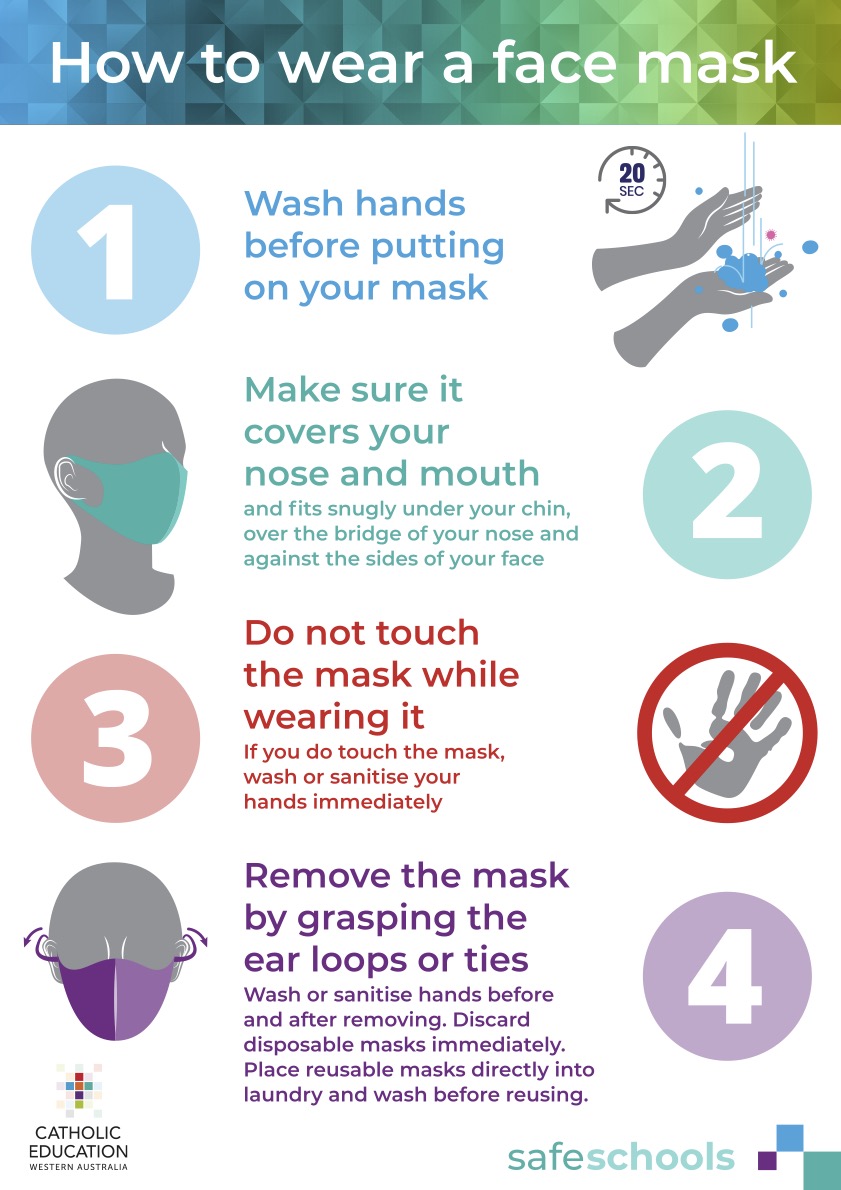Yesterday, Premier Mark McGowan announced that the Department of Health (WA Health) has upgraded the public health and social measures to High Caseload, Level 2, beginning on Thursday, 3rd March. This means Primary school students in Years 3 – 6 are added to mask wearing directions. Masks must be worn by all students in Years 3 and above in all indoor settings across Western Australia (WA), apart from residential and private homes. These additional measures have been implemented with a view to minimise the impact of COVID-19 disruption to learning and continuing face-to-face learning for our students, where possible.
Families are to provide suitable masks each day and the school will have some reserves, if a student’s mask is damaged or lost during the school day. Each child is encouraged to take responsibility for their own mask, however, to assist, we will be providing each child with a plastic zip lock bag to store their mask in during break times.
Mask Wearing in Schools
- All staff members and students in Years 3 and above are required to wear a mask while indoors when at school. Teachers and staff are not required to wear a mask providing teaching or instructions to students; however staff are encouraged to wear masks even when teaching, where possible.
- The requirement to wear masks outdoors will be relaxed unless physical distancing is not possible. This includes travelling on public transport.
- Students in Early Learning Care Centres and Kindergarten to Year 2 are not required to wear a mask, but their teachers and support staff must continue to wear masks, where possible.
- Students in Years 3 and above in Outside School Hours Care (OSHC) are required to wear a mask indoors or outdoors where physical distancing is not possible.
- Common sense should apply regarding the colour and markings on masks, with staff and students asked not to wear masks that may contain inappropriate markings or designs.
- Students may be exempt from wearing a mask at school under the following circumstances:
- the student has a medical certificate issued by a registered medical practitioner confirming a physical, developmental or mental illness, condition or disability which makes wearing a face covering inappropriate; (medical certificates must be forwarded to admin@stdominics.wa.edu.au)
- when communicating with another person who is deaf or hard of hearing, where visibility of the mouth is essential for communication;
- when engaged in strenuous or vigorous exercise;
- when consuming food, drink or medicine, provided that they are seated at the time.
According to Tim Spector, a professor of genetic epidemiology from King’s College in London, where there have been millions of cases of the Omicron variant of COVID-19; “symptoms are much more like a regular cold, particularly in children and those who have been vaccinated, and fewer general systemic symptoms, such as nausea, muscle pains, diarrhoea and skin rashes.” There are now a number of resources providing child specific information for families, including this video from Perth Children’s Hospital and on the WA Health website, HealthyWA here.
Quarantining at Home
Close contacts are required to isolate in separate living spaces from their families (e.g. their bedroom). Where a close contact is unable to effectively isolate from siblings or parents, those sharing the living space with the close contact are also required to quarantine.
If your child needs to quarantine and requires your care during this period, you will need to quarantine with them. Families should choose which caregiver is to quarantine with your child for the entire quarantine period. If brothers and sisters cannot adequately separate from the close contact, they should also quarantine with you. Some older children may be able to quarantine independently in a separate area of the house, if they do not require hands-on care. The family needs to ensure they take extra precautions and have no interaction with the close contact.
If your child tests positive for COVID-19, other family members quarantining with them will be at risk of developing COVID-19 and will be required to complete an additional quarantine period, as directed by WA Health. Siblings of close contacts can still attend school if the close contact is able to isolate away from the rest of the household.
As a Catholic school our priority is for the health, safety and wellbeing of our students and all members of our broader community. We are working through these changes and you will receive further communications as the details are confirmed. For more information on the high caseload protocols visit WA.gov.au.
Thank you for your understanding as we take the necessary steps to keep our school community safe.
If you have queries or concerns regarding your child please contact me. If you have health concerns, please contact WA Health on 1300 316 555 or at PHOpsClinical@health.wa.gov.au.
Leon Bolding
Principal


